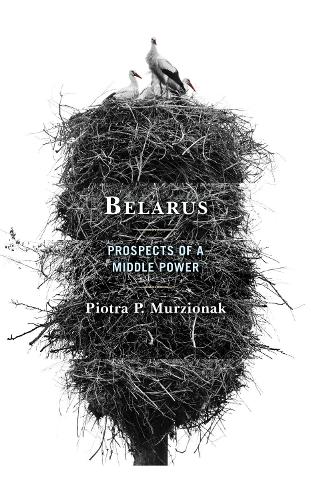
Belarus: Prospects of a Middle Power
(Hardback)
Publishing Details
Belarus: Prospects of a Middle Power
By (Author) Piotra P. Murzionak
Bloomsbury Publishing PLC
Lexington Books
18th March 2022
United States
Classifications
Professional and Scholarly
Non Fiction
History of other geographical groupings and regions or specific cultures / socie
947.8
Physical Properties
Hardback
348
Width 160mm, Height 227mm, Spine 32mm
708g
Description
Belarus, a middle-sized nation with more than a thousand years of history, is not well known beyond periodic media headlines. Modern scholarly and popular literature covers only fragments from Belaruss long history and current geopolitical, social, and cultural issues. Belarusian history in this book differs in many aspects from history and myths created by Russian scholars and propagated worldwide. The author argues for the existence of a Western-Ruthenian (Belarusian-Ukrainian) civilization as a sub-civilization of Western civilization and thus different from Eurasian civilization. With original, detailed. and critical views on Belarusian history from the ninth century to the present, it explores the latest information about Belarusian society regarding mentality, identity, religion, current elites, the Revolution of Hope 2020. It then analyzes the future prospects of Belarus based on an assessment of modern trends in human societal and political development. It provides detailed analysis of current activities of Belarusian national and ruling elites and their ideologies vis--vis the building of a nation-state.
Reviews
Peter Murzionak has written a passionate history of his homeland, Belarus, a country of 9.5 million that has a long history, but only brief periods of cultural development and independence. In 2020, it made world headlines for the protests that followed a rigged election to extend the rule of a ruthless dictator. Dr. Murzionak believes in the future of his country and that all Belarusians, including those outside the country, must strive to attain this goal. His description of the election and its aftermath is grimly stark, but his belief in a democratic future persists. If non-Belarusians wonder what inspires the sacrifices made for this goal, one that thrives in spite of the arrests, tortures, detention, murder, and the hijacking of a plane simply to arrest an opposition leader, then this is the book for you. It is not a "traditional" narrative, it is one from the heart.
--David R. Marples, University of AlbertaThe publication of the book is timely, because recently, under the influence of political events in Belarus, the country has returned to the top of the world's media, while there are still few English works on the past and present of Belarus. One could say that there is a shortage of these works. Therefore, Belarusian issues constitute a kind of 'terra incognita' for the English-speaking reader. The reviewed work, therefore, has a good chance to at least partially fill a significant gap in research on this country. With the help of this book, the reader can discover many unknown episodes in the past and present the Belarusian people. This book will be a source of knowledge on the shaping of statehood, language, and cultural identity of Belarusians. In addition, I would like to emphasize that the work aims to demythologize Belarus. In the minds of some people in the West, there is a certain stereotype about Belarus as a country that belongs to the Russian cultural, civilization, and political zone. This was favored, among others, by the fact that until 1991 there was no independent Belarusian state on the political map of the world. It is no coincidence that back in the twentieth century, in the English language, this country was not called Belarus, but White Russia, so many people in the West associated it only with Russia. This reviewed book challenges this myth and forces us to look at Belarus from a completely different perspective.
--Jerzy Grzybowski, University of WarsawAuthor Bio
Peter Murzionak is president of the Belarusian Institute of Arts and Sciences, Canada.
